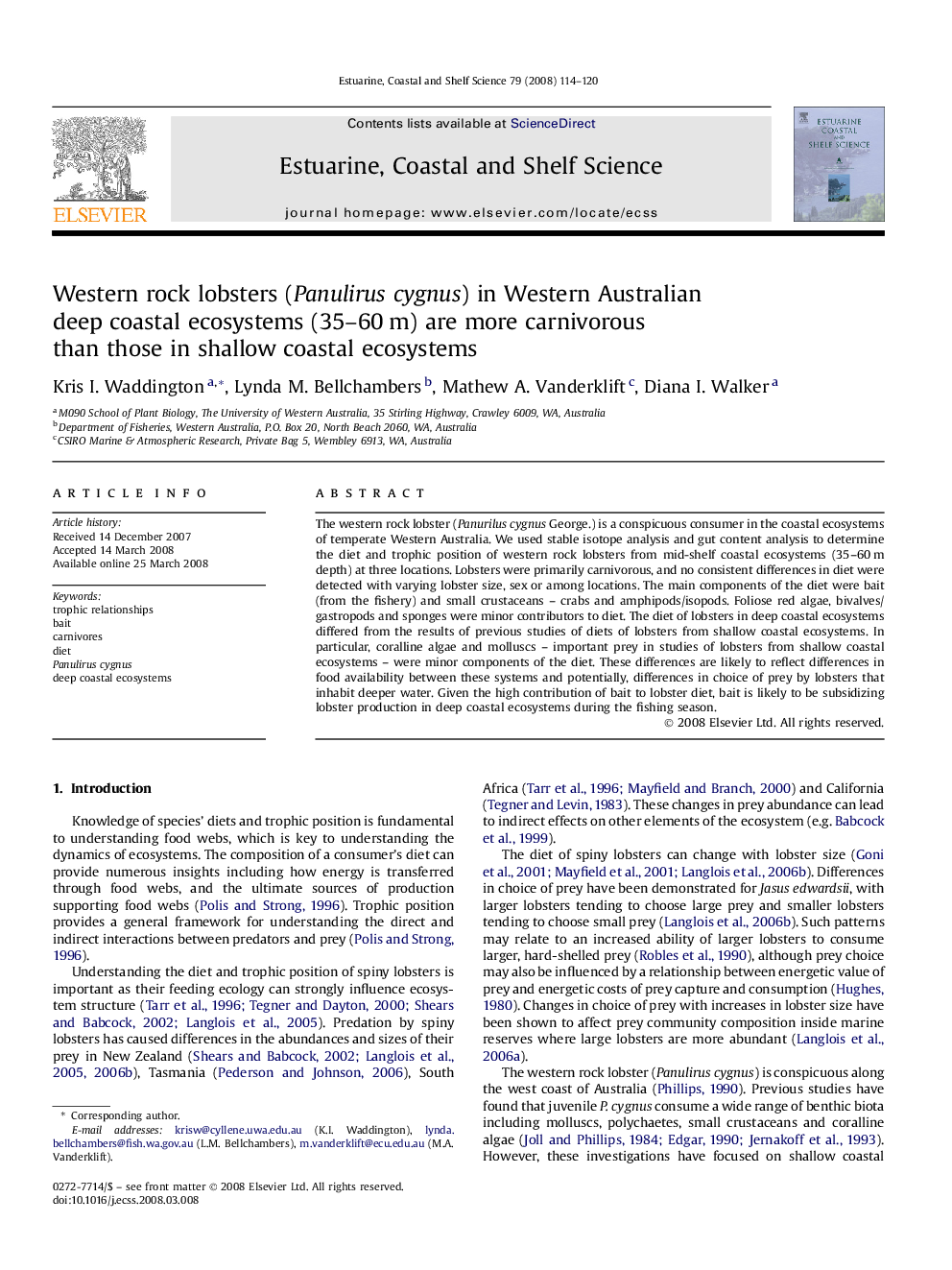| کد مقاله | کد نشریه | سال انتشار | مقاله انگلیسی | نسخه تمام متن |
|---|---|---|---|---|
| 4541571 | 1326730 | 2008 | 7 صفحه PDF | دانلود رایگان |

The western rock lobster (Panurilus cygnus George.) is a conspicuous consumer in the coastal ecosystems of temperate Western Australia. We used stable isotope analysis and gut content analysis to determine the diet and trophic position of western rock lobsters from mid-shelf coastal ecosystems (35–60 m depth) at three locations. Lobsters were primarily carnivorous, and no consistent differences in diet were detected with varying lobster size, sex or among locations. The main components of the diet were bait (from the fishery) and small crustaceans – crabs and amphipods/isopods. Foliose red algae, bivalves/gastropods and sponges were minor contributors to diet. The diet of lobsters in deep coastal ecosystems differed from the results of previous studies of diets of lobsters from shallow coastal ecosystems. In particular, coralline algae and molluscs – important prey in studies of lobsters from shallow coastal ecosystems – were minor components of the diet. These differences are likely to reflect differences in food availability between these systems and potentially, differences in choice of prey by lobsters that inhabit deeper water. Given the high contribution of bait to lobster diet, bait is likely to be subsidizing lobster production in deep coastal ecosystems during the fishing season.
Journal: Estuarine, Coastal and Shelf Science - Volume 79, Issue 1, 10 August 2008, Pages 114–120